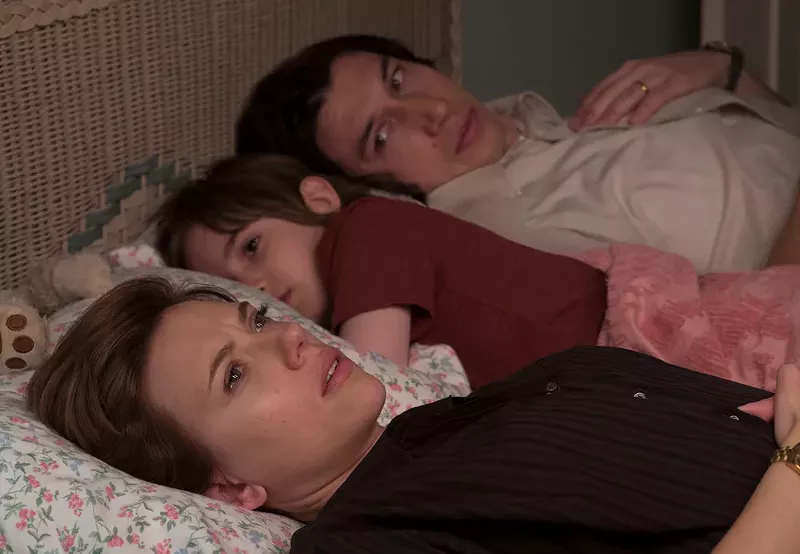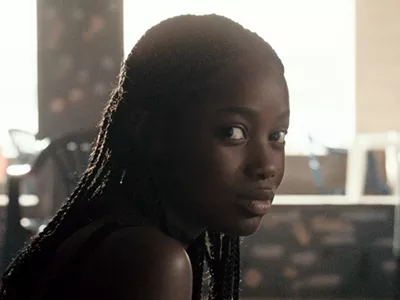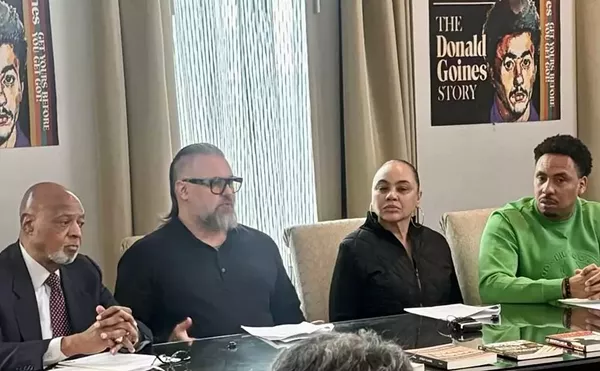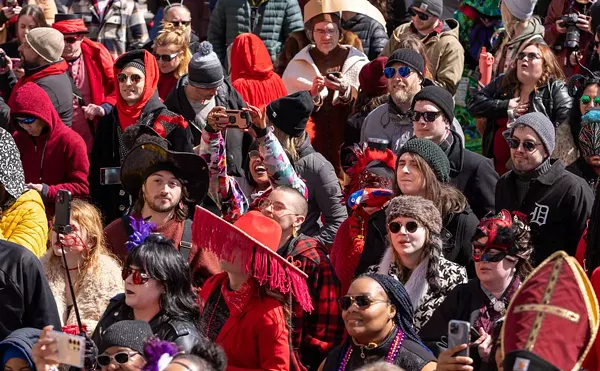
Audio By Carbonatix
[
{
"name": "GPT - Leaderboard - Inline - Content",
"component": "35519556",
"insertPoint": "5th",
"startingPoint": "3",
"requiredCountToDisplay": "3",
"maxInsertions": 100,
"adList": [
{
"adPreset": "LeaderboardInline"
}
]
}
]
Anyone reading will know that relationships are inherently messy, reflecting the chaos inherent in life. They’re unequal and riddled with compromise, unpredictable even when things are planned, and leave countless things unsaid and unrecorded since we don’t live long enough to speak each feeling; even the closest possible people can’t read each other’s minds. All this makes precisely accounting for everything bound up in one, much less dividing the contents — as tends to happen in divorce — a nearly impossible challenge. Many of us frame exes as terrific or as nightmares, magnifying to extremity the faults they know intimately, or to make getting clear simpler — also a part of divorce.
On all these counts, writer-director Noah Baumbach’s Marriage Story (on Netflix and in some local theaters) feels accurate, something I say as a product and casual observer of (rather than instigator or participant in) the process of divorce. Finding Charlie (Adam Driver) and Nicole (Scarlett Johansson) Barber as a theater director and (primarily) stage actor whose marriage provided raw material for a decade of artistic collaboration, the two are separated, anticipating divorce, and struggling with mediation that quickly goes south as Marriage Story opens. Caught in the middle is their sweet but coddled son Henry (Azhy Robertson), who struggles to make sense of the entire process and whose life is on the chopping block — at great risk of being divvied up. Henry serves as both reason and excuse for the film’s escalating, increasingly ugly divorce proceedings; questions of custody and where the fraying family might live are just fuel for the growing fire. With Nicole wanting to act and work in L.A. and Charlie’s theater company tying him to New York, the pair’s respective divorce attorneys shovel onto the pyre plenty of coals. The attorneys (played by Laura Dern, Ray Liotta, and Alan Alda, all splendid), entrench themselves along gendered lines (men vs. women) as they tar and feather their opponents with whatever materials they can find. Dredging up every available minor slight, wrongful assumption and broken promise from a decade-long union, they work ruthlessly to accomplish their clients’ wants. What's most disturbing is the way this mudslinging feels perfunctory, professional, and even natural — it's their job.
Though it may sound dour (admittedly, it’s not upbeat), Marriage Story glides by and watches terrifically well, despite its heavy topic. Baumbach’s always had a skill for comic dialogue, but here the humor’s fused more wholly into the movie’s story. Though many lines and moments are amply funny, there’s never a sense that Marriage Story’s leads are just enacting bits. Recalling her marriage to her attorney, Nora (and so providing ammunition for the brewing conflict), Nicole remarks that “everything is like everything in a relationship.” In much the same way, Marriage Story’s humor is one with its characters’ struggles, and it feels them both more richly for the minglings of its tones.
Its moral shadings are likewise rather nuanced. Attempting a dual perspective (but sticking closer to Charlie than to Nicole), the film also scrutinizes Charlie more heavily, revealing blind spots in his thinking and considerations, suggesting Nicole’s sorrows and frustrations to be an understandable response. Though it sees her a bit less clearly (using crying as a shorthand a bit too often), it also treats her with more sympathy, declining to ever make her a foe. Even the divorce lawyers — often vicious, egging their clients on in pursuit of something that feels like victory — aren’t pitched as villains, more products of a system of norms and ugly requirements that pit longtime partners against each other. In proceedings as the film depicts them, every remark and sleight becomes useful as a weapon, leading well-intentioned people toward the marital equivalent of crimes of war.
Though never distracting, Marriage Story’s formal style is constructed from a web of interlocking, subtly expressive achievements. Pacing most scenes (often just phone calls or in-person conversations) impeccably (Jennifer Lame handled the editing, Robbie Ryan the photography), Baumbach and crew block the film’s action in a manner that both flatters and reveals, with long takes and rich compositions integrated seamlessly into an easy language. Likewise, production designer Jade Healy delivers ceaselessly on the film’s sets and overall look (each law office or apartment speaks precisely to who its inhabitants are). It’s no small thing to make a movie this watchable — no less about a topic this rough — and Baumbach lends an even greater sense of scope through including little markers of time passing, letting us witness the effects of onscreen actions over extended spans of life and time.
This period encompasses, most troublingly, a childhood: the formative years of the son that Charlie and Nicole share, and its fallout will never leave him. The movie’s process is one of rending, of pulling its characters — a family — apart, and in a harsher way than necessary. It’s an ugly thing, but Baumbach does something great by rendering his narrative in such a welcoming, balanced, and broadly feeling style, in elevating a sorry series of events into something so sensitive and textured. It might be construed as an act of generosity to both characters and his viewers, but most of all his chosen method is what makes it possible — even necessary — to watch.
Stay on top of Detroit news and views. Sign up for our weekly issue newsletter delivered each Wednesday.






